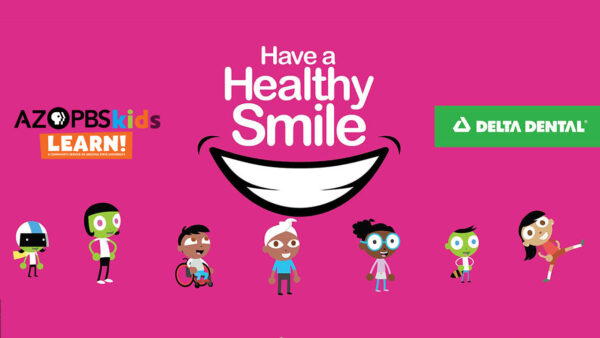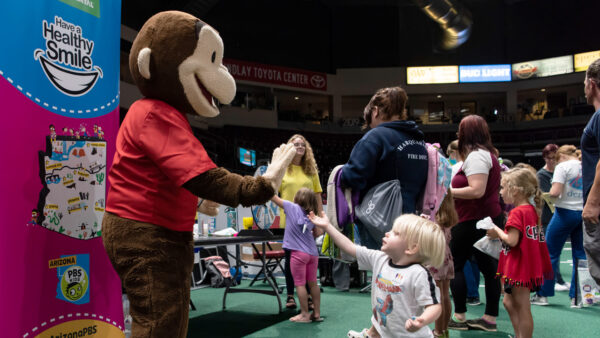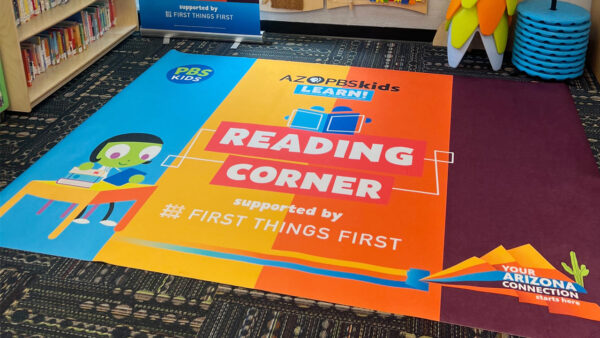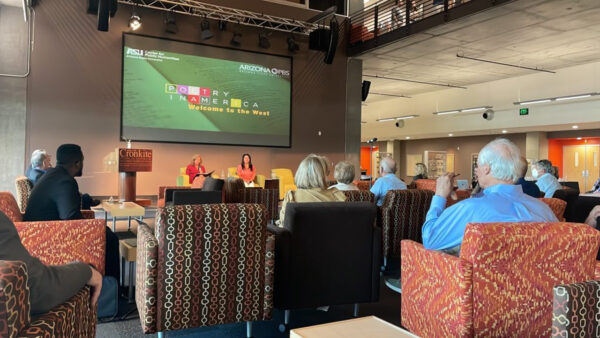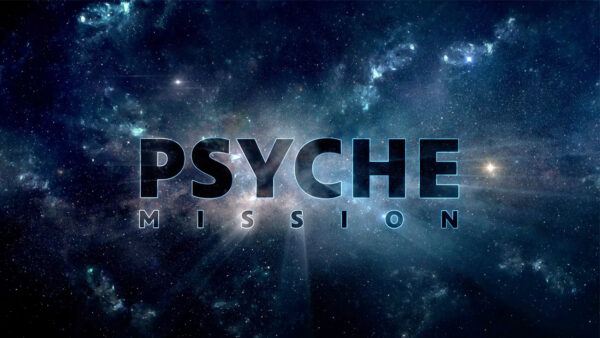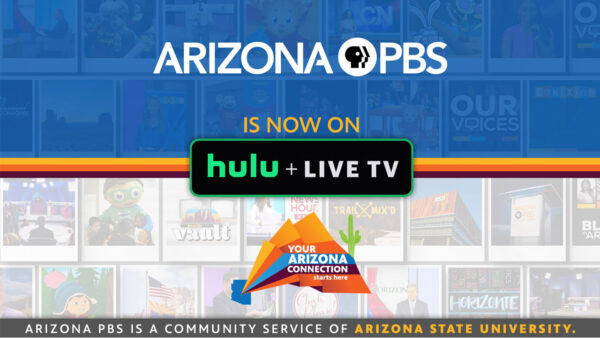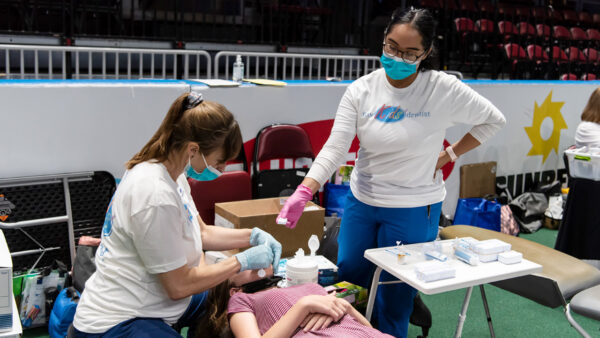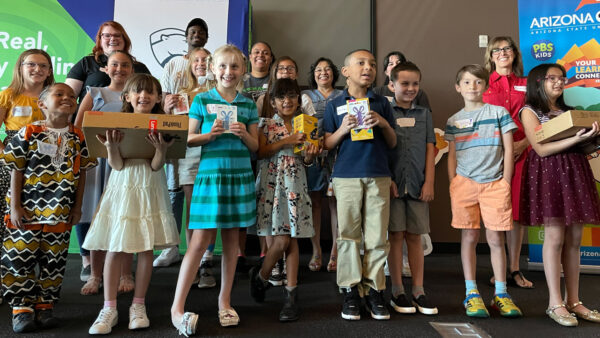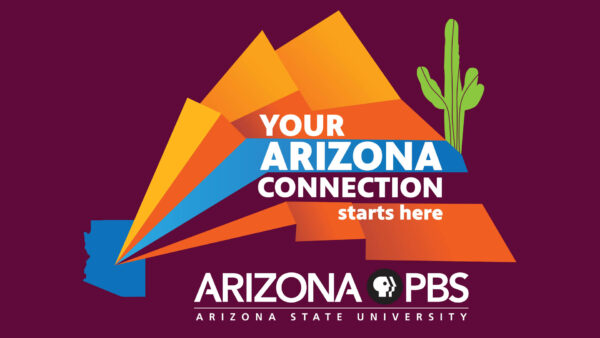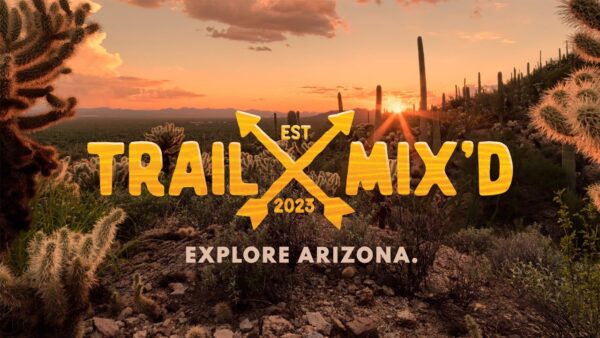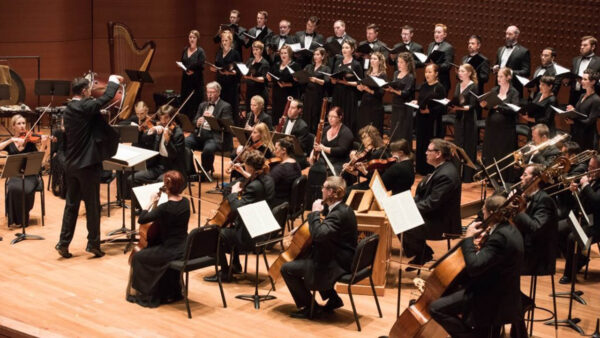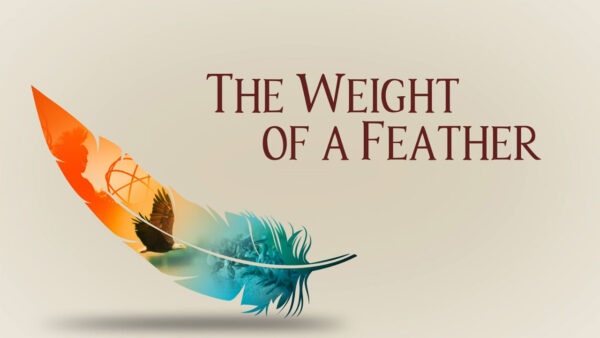Eight’s Yuma partnerships help children read before entering school
Aug. 7, 2013
First Things First and Yuma libraries team up with Eight, Arizona PBS to provide Early Literacy Workstations for local kids
PHOENIX — (August 7, 2013) Eight, Arizona PBS is pleased to announce that as a result of a $40,000 grant from the First Things First Yuma Regional Partnership Council, Eight has partnered with The Yuma County Library District on a project to install a total of 11 early literacy workstations at the Yuma, Somerton, San Luis, Heritage, Foothills, and Wellton branch libraries, providing young children with the educational tools needed in the critical years between birth and five years old, to offer them a head start in developing preliminary reading skills before entering kindergarten. The grant also includes professional development for the librarians. These early literacy workstations go live August 29, when the Yuma First Things First Regional Council will hold an unveiling event and site tour for the new literacy stations from 3 to 5 p.m. at the main library in Yuma (2951 S. 21st Dr., Yuma, AZ 85364). Eight, Arizona PBS will be among the special guests presenting at this event (open to media, but otherwise by invitation only).
Each Early Readiness Station is a dynamic, all-in-one digital learning solution for children ages 2-8. It requires no Internet connection, so it is safe and secure. The latest version features more than 60 educational software titles, spanning seven curricular areas. The educational titles are pre-loaded on the computer and displayed using engaging graphics and intuitive menus.
Eight, Arizona PBS secured the grant and spearheaded the project for the early literacy workstations, which is one of several initiatives Eight has undertaken in Yuma in connection with First Things First since 2011. Other projects include Eight’s monthly professional development institutes for early childhood educators and daycare professionals, in addition to offering educational resources at special events in the area for local kids.
Parent Awareness & Community Outreach Coordinator for the Yuma Regional Partnership Council Nena Garcia explains the importance of laying the foundation for literacy early in a child’s development. “Numerous studies have demonstrated that children exposed to high quality learning in the early years are better prepared for kindergarten and are more likely to do well in school, graduate and go on to college,” says Garcia. Parents also play a vital role in this process. “Babies are born learning, so parents can use the same basic principles of nurturing, reading, talking, singing and playing with their child to help him or her develop language and literacy skills,” adds Garcia. “Studies show that reading aloud to children, developing their ability to recognize rhythms and sounds in language, and extensive exposure to print throughout early childhood are the main tools needed for improving preschool language and literacy skills.” By contrast, children who are unprepared when they enter kindergarten are more likely to drop out of high school, costing the state thousands of dollars more per child each year in remedial or special education, social welfare and related costs. With these statistics in mind, Eight’s Educational Outreach programs are focused around providing children the best opportunities to develop these crucial skills as early as possible. “Proper use of technology can go hand in hand with developmentally appropriate literacy practices,” says Kimberly Flack, Eight Associate General Manager for Education and Outreach. “When using technology in a way that combines activity, social skills and limited screen time, children can flourish and literacy will increase. The library literacy stations will bring another aspect to improving literacy skills.” Even with all these resources at hand, however, parents are still the biggest influencers of their children’s progress in education. “Parental involvement is encouraged to benefit young children’s development,” adds Flack. “Our hope is to provide quality time and remind the parents that they are their child’s first and best teacher. This is another tool to help prepare their children for success in kindergarten.” The Advanced Workstations in Education (early literacy stations) project offers young children the opportunity to engage in early educational content digitally — a fun way of learning, which also helps prepare children for the current technology they are likely to encounter in the classrooms. Children access the educational content using interactive, intuitive interfaces that they can navigate by themselves. “All subject areas are richly represented: literacy, language, science, math and art, and the content can be personalized for each child,” explains Garcia. “The stations are self-paced discovery, prescribed activities, group interaction—it is all possible.”
The goal of the Yuma First Things First Regional Partnership Council is to ensure children and their parents have support to optimize developmental outcomes that ensure children enter school ready to learn. For more information about Eight, Arizona PBS’s work in Yuma, visit azpbs.org/workshops and azpbs.org/yumapd.
Media Contact: Colleen O’Donnell Pierce
[email protected]
(602) 496-0579
(602) 478-3867 (cell)
Visit azpbs.org/pressroom
About Arizona PBS
Arizona PBS is a trusted community resource. For over 52 years, the PBS station has focused on educating children, reporting in-depth on public affairs, fostering lifelong learning and celebrating arts and culture. Arizona PBS achieves its mission through the power of non-commercial television, the Internet, educational outreach and community-based initiatives. Its signal reaches 80 percent of the homes in Arizona. With more than 1 million viewers weekly, Arizona PBS consistently ranks among the most-viewed public television stations per capita in the country. For more information, visit azpbs.org or follow us on Facebook, Twitter, Google+, Instagram, Pinterest or Tumblr.
Arizona PBS is a member-supported community service of Arizona State University and the Walter Cronkite School of Journalism and Mass Communication.
)





